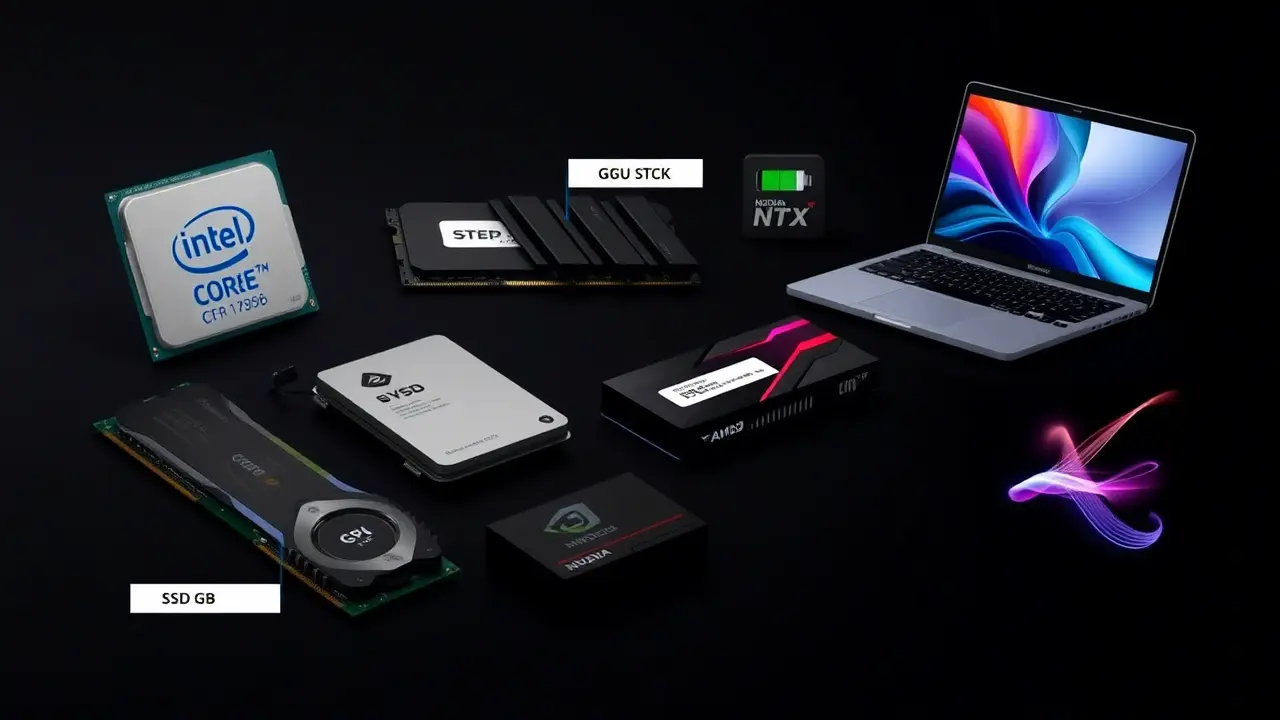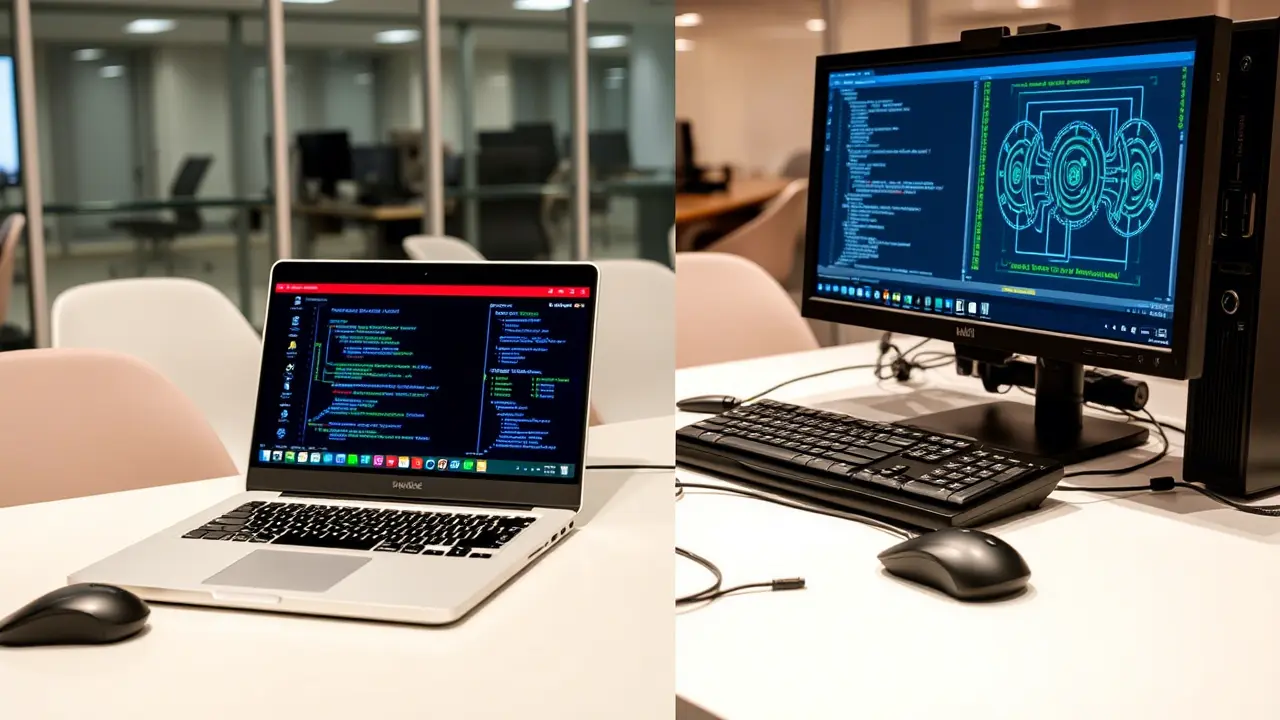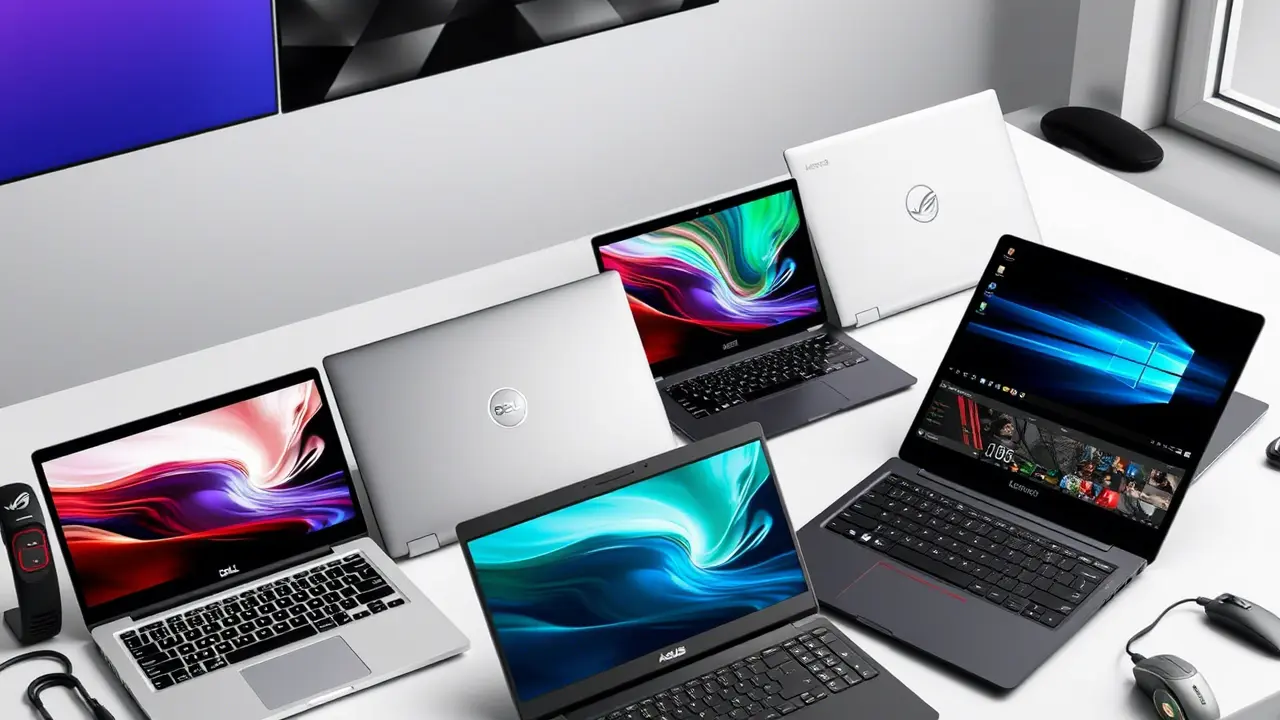Best Computer for Learning Cyber Security Course in India


📅8/16/2025
👁️0 views
Best Computer for Learning Cyber Security Course
Introduction:
Given how quickly cyber dangers are changing in the modern digital world, cybersecurity is one of the most important skills to have. Whether you want to work as a security analyst, penetration tester, or ethical hacker, having the correct computer configuration can greatly impact your learning process. Hardware, operating systems, and software compatibility must all be carefully considered when selecting the appropriate computer for a cybersecurity course.
To assist you in making the ideal choice, we’ll dissect the key features, top laptop vs. desktop options, operating system requirements, and suggested brands in this guide.
Key Specifications for a Cyber Security Computer
Make sure the PC you choose for cybersecurity satisfies the required hardware specifications. The following are important requirements to take into account:

| Component | Minimum Requirement | Recommended Requirement |
|---|---|---|
| Processor (CPU) | Intel Core i7 (10th Gen or newer) / AMD Ryzen 7 (5000 series or newer) | Intel Core i9 (10th Gen or newer) / AMD Ryzen 9 (5000 series or newer) |
| RAM (Memory) | 16GB RAM | 32GB RAM or higher |
| Storage (SSD vs. HDD) | 512GB SSD | 1TB NVMe SSD or higher |
| Graphics Card (GPU) | Integrated GPU (Intel Iris/AMD Radeon) | NVIDIA RTX 3060 or higher (for advanced security research) |
| Battery Life (For Laptops) | 6 hours | 8+ hours |
Laptop vs. Desktop for Cyber Security
Should you go for a laptop or a desktop? Each has its own advantages:

Laptops (Portability & Convenience)
- Ideal for workers and students who require mobility.
- Can effectively run cybersecurity programs when properly set up.
- Popular options: Dell XPS, MacBook Pro (for Unix-based systems), Lenovo ThinkPad, Razer Blade
Desktops (Power & Customization)
- Better cooling, is easier to upgrade, and is more powerful.
- Perfect for high-intensity work and running several virtual machines.
- Best choices: Custom-built PC, Dell Alienware, HP Omen, Lenovo Legion
Operating System (OS) Recommendations
Professionals in cybersecurity frequently work with a variety of operating systems. Here are some things to think about:
1. Windows OS
- Extensively used but not as secure as Linux.
- Ideal for malware analysis, penetration testing, and everyday use.
2. Linux OS (Best Choice for Cybersecurity)
- Very safe and open-source.
- Popular distributions: Kali Linux, Parrot Security OS, Ubuntu, Debian.
3. MacOS
- Secure and Unix-based.
- Cybersecurity tool software compatibility is limited.
- It’s not the best for penetration testing, but it’s best for networking and programming.
Best Computers for Learning Cyber Security in 2024
The following are a few of the best PCs suggested for students studying cybersecurity:

Best Laptops
| Dell XPS 15 (Best Overall) | Great display, long battery life, and high performance. |
| Lenovo ThinkPad X1 Carbon (Best for Portability) | Strong, portable, and long-lasting. |
| Razer Blade 15 (Best for Hacking & Penetration Testing) | Top-tier specifications for dedicated cybersecurity experts. |
| MacBook Pro (For Apple Users) | Perfect for safe Unix-based environments and programming. |
Best Desktops
- Custom-built PC (Best for Customization & Performance)
- Dell Alienware Aurora R15 (Best for Power Users)
- HP Omen 45L (Best for Gaming & Cybersecurity Research)
- Lenovo Legion Tower 7i (Best for Virtual Labs & AI Security Work)
Essential Software for Cybersecurity Students
It takes more than just a strong computer; you also need the appropriate tools. Among the necessary software are:
| Virtualization Tools | VMware Workstation, VirtualBox, Hyper-V |
| Penetration Testing Tools | Kali Linux, Metasploit, Wireshark, Burp Suite |
| Network Security Tools | Nmap, Snort, OpenVAS |
| Password Cracking Tools | Hashcat, John the Ripper |
External Accessories for Cybersecurity Work
Think about purchasing these extra resources:
- External SSD (For Extra Storage)
- Mechanical Keyboard (For Faster Typing & Coding)
- Large Monitor (For Multi-tasking & Running VMs)
- USB Bootable Drive (For Linux Live OS & Recovery)
Budget Considerations for Cybersecurity Computers
It’s not necessary to spend a fortune on a solid cybersecurity PC. This is a general budget guide:
| Entry-level (Under $1000) | Dell Inspiron, Acer Predator Helios 300 |
| Mid-range ($1000-$2000) | Lenovo ThinkPad X1, MacBook Air M2 |
| High-end ($2000+) | Dell XPS 15, Razer Blade 15, MacBook Pro 16” |
Conclusion
Your needs, money, and the kind of cybersecurity work you intend to do will all play a role in your decision regarding the best computer for learning cybersecurity. A powerful desktop computer or high-performance laptop with an SSD, a powerful processor, and at least 16 GB of RAM will guarantee seamless learning. Although Windows and macOS have their benefits, Linux-based platforms such as Kali Linux or Parrot OS are best suited for penetration testing.
Purchasing the appropriate hardware will enable you to easily establish virtual labs, test out security technologies, and eventually become an expert in the field of cybersecurity.
In this case, if you wish to start an authentic career in cybersecurity under the career-promising guidance of a well-trained cybersecurity instructor, you are certainly at the right place. Craw Security is the leading cybersecurity training provider in India, and it delivers quality cybersecurity training with the most qualified training professionals. To know more about the upcoming batches and other crucial forms of info, you can visit the Official Website of Craw Security or give us a call at our 24X7 hotline mobile number +91-9513805401.




